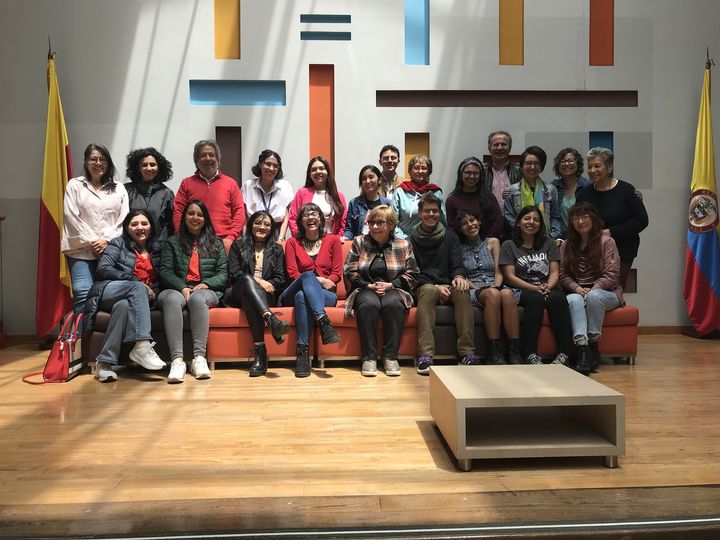
On 6 July, we celebrated the conclusion of the First District School of Literary Translation, a programme developed by ACTTI with the support of the Instituto Distrital de las Artes (IDARTES, Bogotá).
The school aimed to bring translators together for training on the theoretical, methodological, and practical principles for translating literary texts, allowing them to take advantage of the opportunities available in the local and national publishing industries.
This first edition was designed as a 46-hour training programme for English/‑Spanish and French/‑Spanish, consisting of three modules:
- Module I (14 hours): Theoretical principles of literary translation and development of literary translation projects
- Module II (20 hours): Literary translation in practice
- Module III (12 hours): Getting translations published
The training programme was geared towards those interested in learning a systematic and evidence-based approach to literary translation who, despite having little or no experience in this area, had a good understanding of French or English literary texts and good Spanish writing skills.
The modules were led by literary translation experts who are widely recognised in publishing and academia, including Alfonso Conde, María Mercedes Correa, Záide Figueredo, Mercedes Guhl, and Catalina Vargas. They highlighted the importance of providing initial training in this field, which requires not only linguistic knowledge but also strong cultural expertise, demonstrated by understanding the meaning of the text, the voice of the author, the style, the period, and its context.
In ACTTI’s proposal, the main goal was to provide trainee translators with tools that would allow them to take a more systematic approach to translation problems, be more aware of the decisions they make, and have a better understanding of the criteria used to evaluate literary translations.
The school’s objectives focused on helping students to:
- familiarise themselves with theoretical arguments on the nature of the literary text and on the approach to be taken when transferring a literary work from one language to another
- develop practical strategies for describing and solving the translation problems found in different types of literary texts
- understand the criteria used to evaluate literary translations and how these are applied in publishing and when awarding grants or awards, and
- understand how to develop and present a translation project that meets the expectations of the publishing industry.
ACTTI would like to thank IDARTES for believing in our association, understanding our principles, and supporting us in promoting the professional development of our colleagues. We hope to continue this programme in the years to come.
Pablo Ernesto Reyes (ACTTI)
